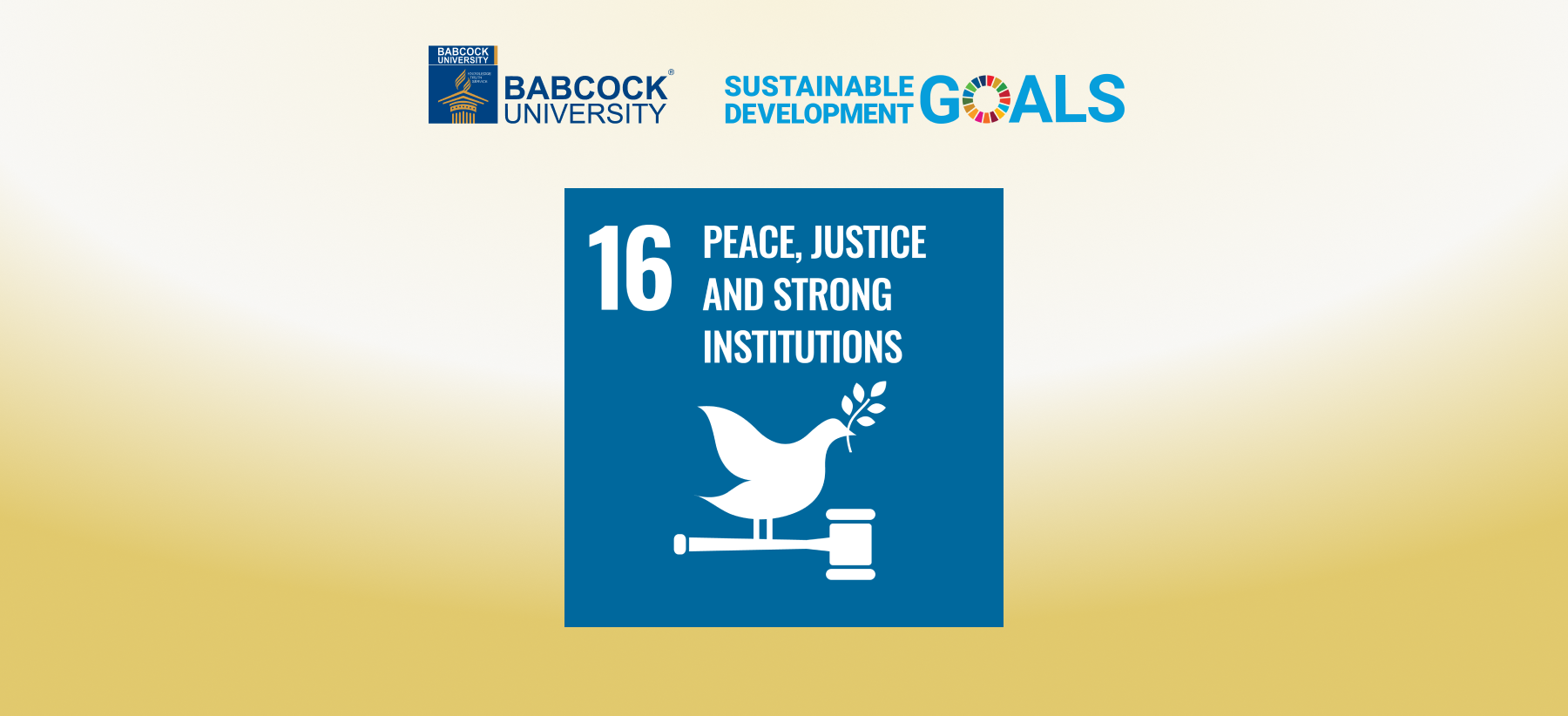| Admin

Babcock University’s Commitment to Peace, Justice, and Strong Institutions (SDG 16): Addressing Gender-Based Violence, Enhancing Justice, and Promoting Accountability
Babcock University is advancing research to promote peace, ensure justice, and strengthen institutional resilience. By focusing on gender-based violence, justice reform, and social media’s role in democracy, Babcock aligns with Sustainable Development Goal 16, fostering inclusive, accountable, and effective institutions.
Addressing Sexual Violence in Conflict
In conflict zones, particularly during the Boko Haram insurgency in Nigeria, sexual violence has become a weapon of terror. The study, Sexual Violence in Armed Conflict in Nigeria: International Law and Domestic Law at the Crossroads, explores the legal challenges and gaps in prosecuting perpetrators. This research emphasizes the urgent need for stronger legislative frameworks to protect victims and hold perpetrators accountable, aligning with Babcock University’s commitment to peace and justice.
Reinventing School Health Management for Justice and Protection
In addressing institutional weaknesses, the study, Reinventing School Health Service Management in Nigeria: Literature Review, Best Practices for Digital Upgrade, examines school health services to protect vulnerable populations. By advocating for digital upgrades in school health management, this research reflects Babcock University’s dedication to building resilient health systems that serve as protective institutions for youth, thus promoting justice and well-being.
Social Media and the Democratization Process in Sub-Saharan Africa
Social media has reshaped political participation, amplifying citizen voices and enhancing transparency in governance. The study, The New Democratisation: Social Media Impact on the Political Process in Sub-Saharan Africa, examines how social media mobilizes citizens and holds governments accountable, a crucial aspect of democracy. This research underscores Babcock University’s commitment to fostering strong institutions and participatory governance.
Media Framing of Gender-Based Violence
The portrayal of gender-based violence in the media shapes societal attitudes and reinforces institutional accountability. The study, Transitivity System and Ideological Framing in News Headlines Reporting Gender-Based Violence in Nigeria, explores media language and ideological framing, revealing biases and the role of media in sensitizing the public to justice issues. This aligns with Babcock University’s objective of promoting institutional accountability and addressing societal injustices.
Conclusion
Through research on conflict-related violence, school health protection, and democratic participation via social media, Babcock University supports SDG 16, working toward peaceful, just, and inclusive societies. These studies collectively reinforce the university’s dedication to building institutions that promote justice, protect vulnerable populations, and ensure transparency and accountability in governance.